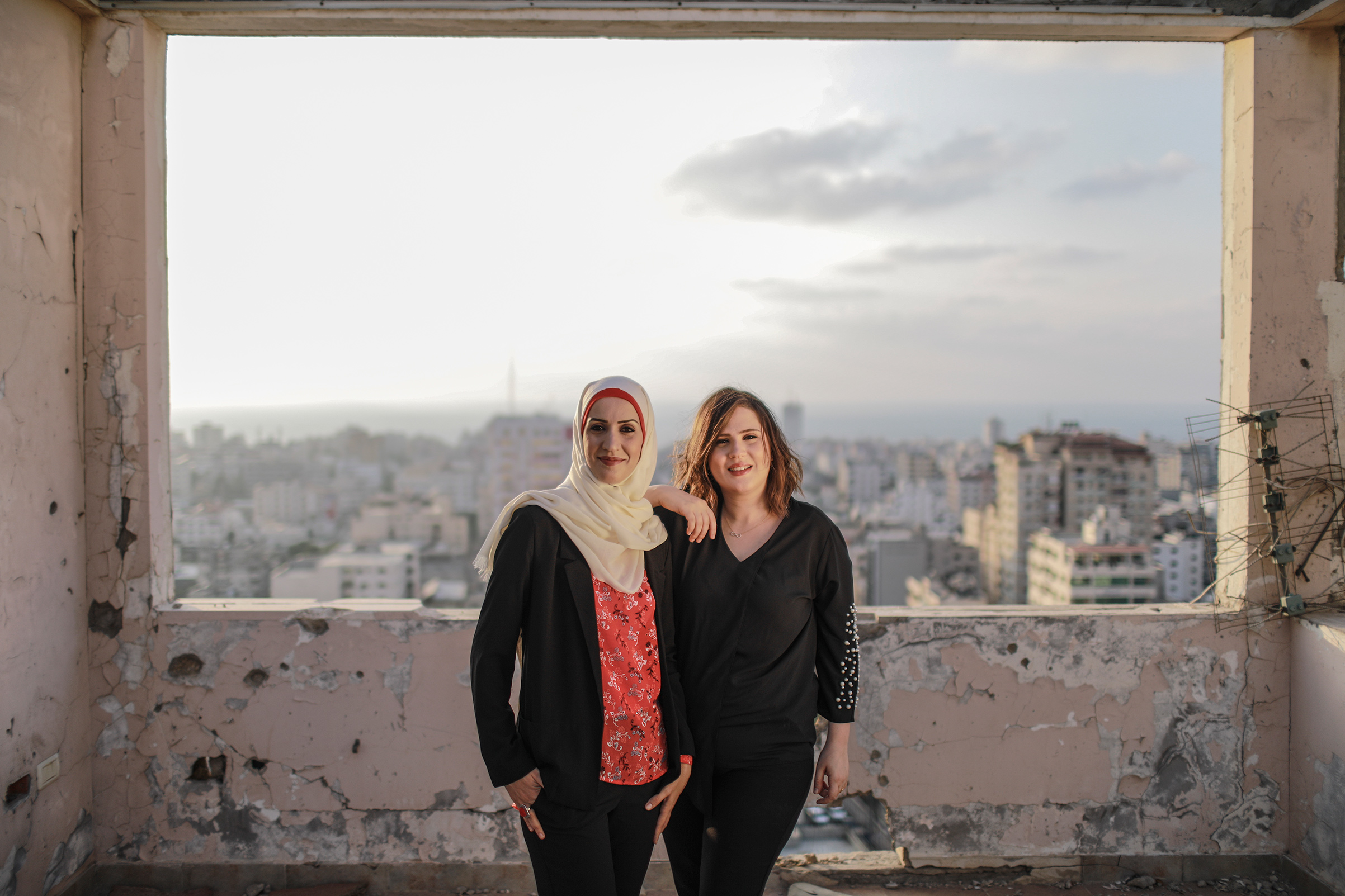When Bassma Ali finished college with a degree in computer science, she was eager to find a job in her hometown in the Gaza Strip. But, as with many skilled graduates in the territory of 1.9 million people, her enthusiasm soon turned into frustration.
Since 2007, Gaza has been under a land, air and sea blockade from Israel, severely restricting the movement of goods and people. According to the Palestinian Central Bureau of Statistics, 49% of the working-age population is unemployed. The problem is especially acute among Gaza’s young IT graduates, roughly 70% of whom can’t find jobs. “Everyone is trapped,” Ali says. “It feels like you’re facing a wall.”
Ali, 33, and Rasha Abu-Safieh, 34, are trying to tear down that wall with their startup, GGateway. Launched in 2012 as part of the U.N.’s agency for Palestinian refugees, it gets around restrictions on the territory by connecting tech-savvy Gazans to companies with remote working opportunities. They have helped 620 young Gazans build tech-based careers. In May they secured $3 million from the World Bank to turn GGateway into a regional hub for the digital economy.

At least half of spots on the program are reserved for female computer science graduates, fewer than one fifth of whom currently manage to find work. Abu-Safieh says employers tend to discriminate against women because they assume they will have to give up work when they start a family. Both GGateway founders prove this is not the case; between them Abu-Safieh and Ali have five children under the age of 10. They allow new mothers to bring their babies to sessions, preventing them from falling behind.
The pair say the lack of opportunity in Gaza has an impact on the mental health of young people, leaving them open to exploitation by extremist groups. “They feel they belong to nowhere and their dreams are unachievable,” Ali says. “That’s very dangerous.”
But GGateway is transforming their outlook. “When we get them generating an income, they start to believe in their abilities,” Abu-Safieh says. “They start to believe they have a future.”
- How Nayib Bukele’s ‘Iron Fist’ Has Transformed El Salvador
- What Makes a Friendship Last Forever?
- How to Read Political Polls Like a Pro
- Long COVID Looks Different in Kids
- What a $129 Frying Pan Says About America’s Eating Habits
- How ‘Friendshoring’ Made Southeast Asia Pivotal to the AI Revolution
- Column: Your Cynicism Isn’t Helping Anybody
- The 32 Most Anticipated Books of Fall 2024